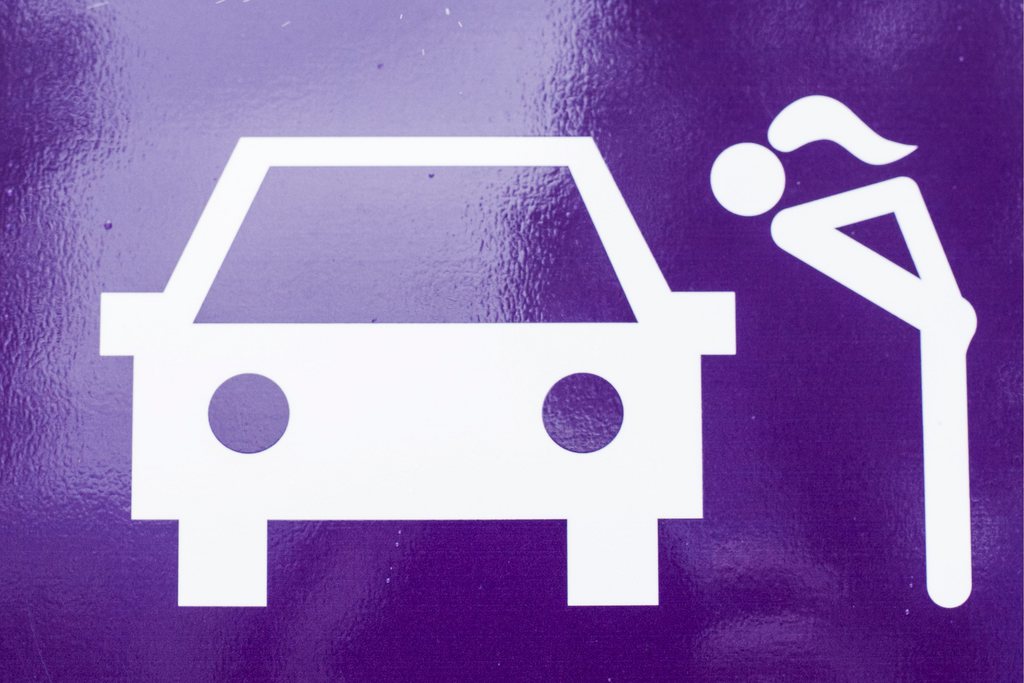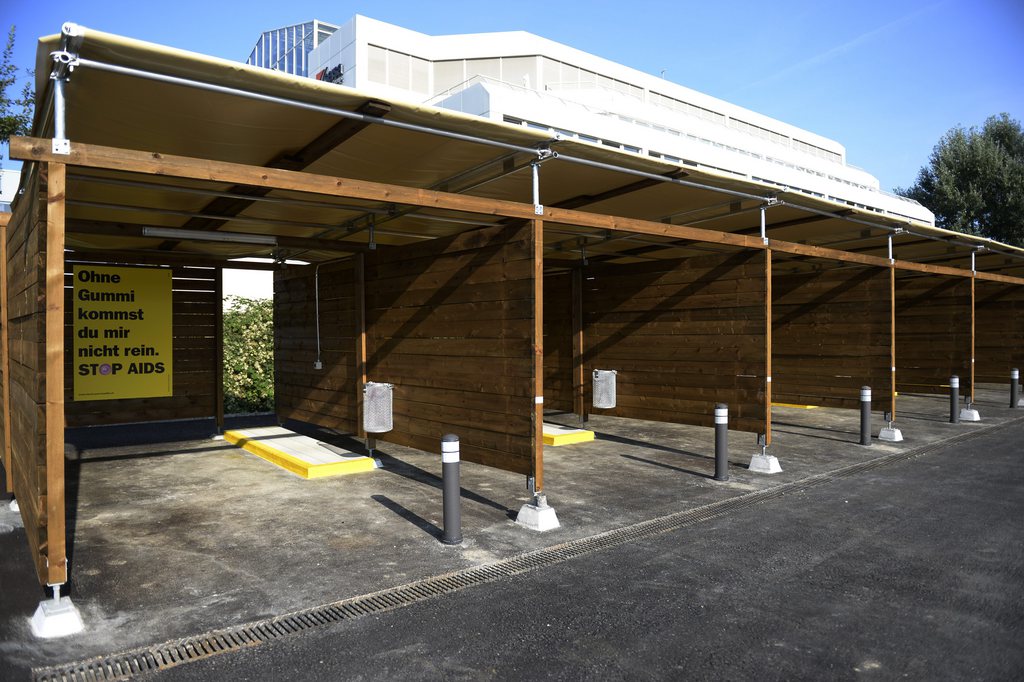Authorities relieved by sex box success

Zurich’s so-called sex boxes are having the desired effect seven months after their introduction: work has become safer for prostitutes and residents are no longer disturbed, according to local authorities.
“The overall situation has clearly improved,” said Richard Wolff, head of the Zurich police department, on Tuesday.
“The sex boxes have good supplies and services, there’s advice, it’s safe – there are showers and changing rooms. It’s completely different from how it used to be. Bearing this in mind, I think the situation’s much better for most prostitutes and for nearby residents.”
Under the gaze of the world’s media, Zurich’s experiment began at the end of August 2013. The sex boxes are a dozen open garages where drivers park to make use of the prostitutes’ services.
Wolff stressed that the aim was not to force prostitution out of the city. “It’s rather a question of making it ‘city-compatible’ and protecting the sex workers.”
On average, 15 prostitutes are now present in the area – half the number that used to walk along Zurich’s Sihlquai.
Some prostitutes complain about earning less in the boxes, but local councillor Martin Waser says the main thing is that the boxes are generating enough business to continue.
“There isn’t a minimum wage in prostitution,” he added.
New law
The new prostitution trading regulations have been in force since the beginning of 2013. These require approval permits for brothels in Zurich’s Langstrasse district.
One problem, however, is that a building and zoning regulation bans small brothels in residential areas, which includes Langstrasse.
Wolff said they were looking for a solution and more adjustments would be made.
“Parlours should not completely disappear from the Langstrasse district.”
Not everyone is happy, however. FIZ, an association providing support for migrant women and victims of trafficking, said the number of reported cases of women being trafficked had dropped by 25% compared with the previous year.
The organisation presumes that number has gone down because many cases are going unreported, more women are being trafficked through underground networks and gaining access to suspected victims has become harder.

In compliance with the JTI standards
More: SWI swissinfo.ch certified by the Journalism Trust Initiative










You can find an overview of ongoing debates with our journalists here . Please join us!
If you want to start a conversation about a topic raised in this article or want to report factual errors, email us at english@swissinfo.ch.